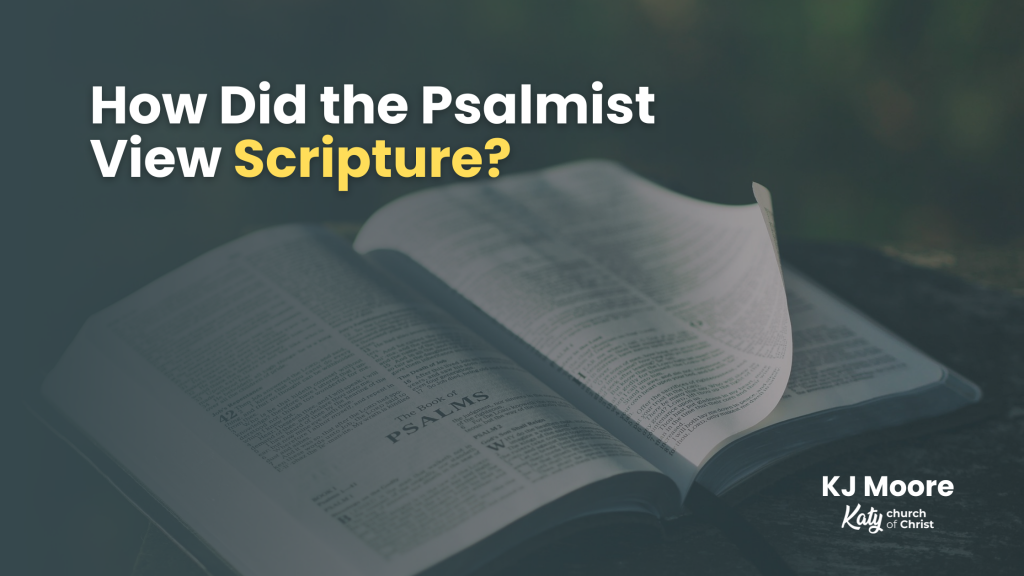
Many plights face what the world understands as modern Christendom. Often at ideological odds with the Lord’s people, His church, those in Christendom have latched onto quite troublesome doctrines. God’s sovereignty, according to some, disallows the free moral agency of mankind. God’s goodness, as posited, is contradicted by His judgment upon the willfully sinful. God’s rule, according to others, does not impact how we ought to worship. These errors and more result from a reinterpretation of God, one that bears no resemblance to what we find in Scripture.
In response to what Scripture says of Him, the wavering must decide what they will do. We understand that to receive God is to receive His teaching, and to deny His teaching is to deny Him (Jn. 12:48). We comprehend that God’s word is capable of abiding in and being snatched from one’s heart (Lk. 8:11-15). Despite this, great controversy exists over the capabilities of Scripture. It is a commonly held idea that one can have a close relationship with God without any regard for His word; such a supposition is demonstrably false. No person, no matter how “religious” or “spiritual,” can hope to have closeness with the Lord without reverence for His word. The Psalmist is clear, as we will see: a lack of reverence for God is evidenced by a lack of reverence for His word.
Today’s study will concern Psalm 19:7-11. The Psalms are abundantly clear in showing that our view of God’s word is often insufficient. Those believers of the ancient world believed that the word of God was capable of nourishing, revitalizing, purifying, and sanctifying us. As such, let us allow the Psalmist to teach us why modern departures from such a view are altogether unfounded and illogical.
David first writes that “The law of the Lord is perfect” (v. 7a), its faultlessness mirroring the perfection of its Author. It is able to revive the soul through its faithful and trustworthy testimony, “making wise the simple [naive]” (v. 7b-d). Already, God’s instruction is said to be perfect, capable of reviving our souls and sharpening our minds. Verse 8 indicates that God’s instructions are just and right, “rejoicing [gladdening] the heart” (v. 8a-b). God’s authority ought to bring the believer joy. Furthermore, the purity of God’s law gives light for one’s eyes (v. 8c-d), allowing us to see our way more clearly and follow Him more closely. Verse 9 continues by stating that “the fear of the Lord is clean,” indicative of an ethically and spiritually pure attitude, and that it endures forever (v. 9a-b). Furthermore, His judgments are altogether true and righteous (v. 9c-d).
The quality and desirability of God’s word is then compared with those of precious treasure and nectar. The ESV renders verse 10 as such: “More to be desired are [God’s instructions] than gold, even much fine gold; sweeter also than honey and drippings of the honeycomb.” In the first case, God’s word is said to be more desirable than gold, and this is emphasized with the subsequent reference to “fine [pure] gold.” The same happens in the latter part of the verse, as God’s word is said to be sweeter than honey and even, as the Psalmist accentuates, purely extracted honey. The word of God is sweeter than food and more valuable than riches. Verse 11 then states that by God’s instructions we are warned, and that in heeding said warnings there is great reward.
Prayerfully, our study this month has allowed us to pursue a more holistic understanding of God’s character and statutes. The Psalmist gives a great deal of insight for the believer, and his reverence ought to inform our own. May we remember that the believer is able to display the fullest of human emotions while reverently falling before God’s throne. Said another way, a God-fearing life devoid of rightly informed passion, like that of the Psalmist, is no God-fearing life at all. As New Testament Christians, let us engage in heartfelt, sincere worship today, revering who God is and what He has said. May we never take power away from the Spirit-inspired word of God (2 Pet. 1:16-21)!